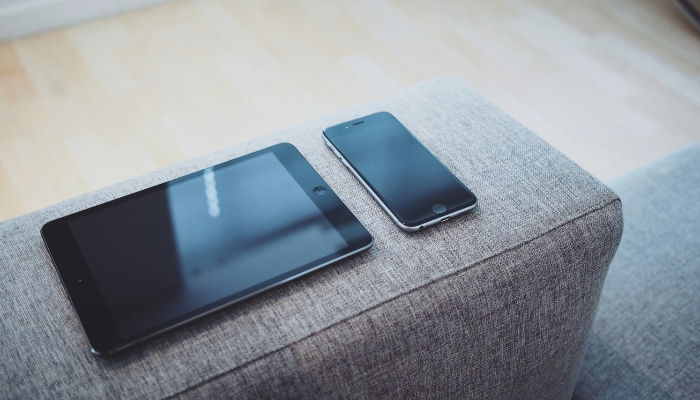
When addressing the query “what type of phone number has 13 digits,” it’s essential to delve into the world of international telecommunications. Typically, a 13-digit phone number is an international number, including the country code and possibly an area code, along with the local number. These numbers are often used for international dialing and can vary based on the country and region.
In relation to “what type of phone number has 13 digits,” Identingly’s reverse phone lookup and identity verification services can be particularly useful. If you encounter a 13-digit number and need to understand its origin or verify its authenticity, Identingly’s tools can provide valuable insights, helping to identify the country and possibly the region associated with the number.
For anyone encountering a 13-digit phone number and wondering “what type of phone number has 13 digits,” using Identingly’s services can be a practical step. By leveraging Identingly’s capabilities, you can gain clarity on the nature of these numbers, ensuring you have the necessary information to understand their origin and purpose, and to communicate safely and effectively.
Understanding Phone Number Structures
Diving into the structure of phone numbers, it’s crucial to grasp that a 13-digit number typically has a specific format designed for easy international identification and dialing. These formats, whether 13 digits for international numbers or 11 digits in phone numbers for certain domestic systems, are guided by numbering regulations.
The first few digits, known as dialing codes, represent the country’s unique identifier. They vary in length depending on the country. You’ll find that the United States uses ‘1’, while the United Kingdom uses ’44’. These codes are followed by prefix variations, which usually indicate specific regions within the country, aiding in the geographic distribution of phone numbers.
However, with advancements in telecommunication technology, number portability has become increasingly significant. It allows you to retain your number while switching service providers or even moving to a different geographical area. This does introduce complexities in the geographical distribution, but it’s a trade-off for user convenience.
13-Digit Phone Numbers Worldwide

Around the globe, you’ll encounter phone numbers with varying lengths, with some extending to a lengthy 13 digits. This diversity in length is tied to Global Numbering Patterns, International Dialing Codes, and the Evolution of Phone Numbers influenced by specific Telecommunication Regulations.
You’ll notice that Unusual Phone Formats are commonplace, not exceptions. The reason? Each country has authority over its telecommunication system, resulting in distinct numbering patterns. While North America follows a 10-digit format, other countries like China and India have 11 or even 13-digit phone numbers. This discrepancy is due to factors like population density, telecommunication infrastructure, and regulatory decisions.
Let’s break down some of the key elements you’ll see in global phone numbering:
- Country Code: Ranging from 1 to 3 digits, this is part of International Dialing Codes.
- Area Code: This can vary greatly in size, depending on the country’s telecommunication structure.
- Local Number: This is what you dial after the area code; its length can also vary widely.
- Extension: Not always present, but when it is, it’s usually after the local number.
Understanding these elements and how they work together can help you navigate the world of international dialing.
Country Using 13-Digit Numbers
As we’ve explored the global diversity in phone numbering, let’s now focus specifically on those countries that employ a 13-digit phone number system. Among the nations worldwide, China stands out as a primary user of 13-digit mobile phone numbers. This system is a result of China’s specific numbering regulations, which aim to manage the country’s massive population and widespread technological influences.
Regional differences further dictate the structure of these numbers. For instance, the first three digits may indicate the telecom operator, followed by a three-digit area code, and then the subscriber’s unique seven-digit number. This system allows for efficient distribution and management of numbers across different provinces and cities.
Two critical aspects that significantly influence this system are emergency services and national security. A comprehensive 13-digit structure ensures that citizens can swiftly contact emergency services when required. Simultaneously, it aids in establishing robust national security measures, as it allows for efficient tracking and identification of calls, if necessary.
Structure of 13-Digit Phone Numbers
So, how exactly does a 13-digit phone number break down? The structure is vital for Number Privacy, Digit Analysis, User Adaptability, Emergency Services, and Number Portability.
The first few digits usually represent the country code, then the area code, the local exchange, and finally the subscriber number. This structure has several benefits:
- Number Privacy: The structure allows for number masking, enhancing privacy. Only the last four digits are often exposed.
- Digit Analysis: The structured format assists in analyzing phone traffic, understanding user behavior, and detecting fraud.
- User Adaptability: It’s easier for users to remember structured numbers. They can simply recall parts of the number.
- Emergency Services & Number Portability: The area code helps emergency services locate callers. Plus, if you move, your number can move with you due to the local exchange and subscriber number.
Role in Domestic Communications

In the realm of domestic communications, 13-digit phone numbers play an integral role in facilitating efficient, secure, and adaptable phone interactions. They often incorporate domestic dialing codes, which allow for detailed localization of calls and contribute to communication efficiency. With advanced technology’s role, you can quickly and accurately route calls to the right region or even the exact device.
These long-form numbers also significantly enhance the emergency call systems. When you dial an emergency number, the system can use the additional digits to pinpoint your location more precisely, allowing for quicker response times. This can be potentially life-saving in critical situations.
However, with the added precision and efficiency, there are also privacy implications to consider. The detailed information that a 13-digit number can hold might make it easier for unauthorized individuals or entities to track your location or intercept your communications. It’s important to be aware of these implications as the technology evolves.
Impact on International Dialing
In international dialing, the number of digits in phone number, especially in 13-digit phone numbers, can dramatically streamline the process. Long gone are the days of dialing complexities and communication barriers. Thanks to tech advancements, international relations have become easier to maintain via telecommunication.
- Dialing Complexities: With a 13-digit number, dialing becomes straightforward. You no longer need to remember country codes or area codes, reducing the chance of misdialing.
- Communication Barriers: The extended number format allows for more unique numbers, decreasing the possibility of crossed lines or miscommunication.
- International Relations: Businesses and individuals can communicate seamlessly across borders, strengthening global relationships. No matter where you’re located, you’re just a call away.
- Call Costs: With tech advancements and the adoption of VOIP systems, the cost of international calls has dramatically decreased. A 13-digit phone number can be assigned to a VOIP system, ensuring you’re not racking up huge bills.
13-Digit Mobile Numbers Vs Landline
While the benefits of 13-digit phone numbers for international dialing are clear, it’s worth comparing these advantages to traditional landline services. The landline evolution has certainly had its prime; however, the mobile progression has exponentially surpassed it due to rapid technological advancements.
In the realm of durability, landlines often outshine mobile phones. Landlines are resilient during power outages and are immune to the pitfalls of poor signal strength, which tend to plague mobile phones. However, mobile phones have advanced tremendously, offering features such as portability and multimedia access that a traditional landline can’t compete with.
Consumer preferences have shifted dramatically towards mobile phones. The convenience of having a personal device carrying a 13-digit number, which allows seamless international communication, is a significant factor for this change. Mobile phones also provide an integrated platform for various activities, such as online shopping, banking, and social networking.
Future of 13-Digit Phone Numbers
Looking ahead, you’ll find that the future of 13-digit phone numbers promises further innovation and expansion in the global communication landscape. As telecom policies evolve, the digit expansion is likely to accommodate the growing demand for unique phone numbers, enhancing the scope of future technologies.
- Number Privacy: Telecom companies are expected to enhance number privacy, making it harder for unauthorized entities to access or misuse your personal information.
- Digit Expansion: As the world population grows, the need for unique phone numbers will increase, leading to further digit expansion.
- Future Technologies: The advent of new technologies such as 5G and IoT will need a broad spectrum of unique identifiers. The 13-digit format will provide the flexibility needed for these advancements.
- Consumer Adaptation: There’ll be challenges, but with time, consumers will adapt, just as they did when telephone numbers expanded from seven to ten digits.
Common Misconceptions About 13-Digit Numbers

There are numerous misconceptions swirling around the topic of 13-digit phone numbers that need to be clearly addressed.
You might think that the length of a number directly compromises your number privacy, but it’s not the case. The length of a phone number doesn’t determine its security or privacy level – it’s the protective measures put in place by the service provider that ensure privacy.
Another common fallacy is related to digit significance. You might believe that each digit in a 13-digit number holds a unique meaning or code. While certain digits do specify the country or network code, not every digit carries a specific significance.
Misinterpretation issues often arise as people mistakenly believe that 13-digit numbers are only for specific types of lines or services. The truth is, any phone number, regardless of length, can be assigned to any line or service based on the provider’s discretion.
The tracing origin of a 13-digit number isn’t as complicated as it’s often made out to be. It involves identifying the country and network code, not a super complex process.
Misconception correction is crucial to avoid confusion and fear. Understanding the truth about 13-digit numbers can help you navigate the telecom world with more confidence.
Conclusion
In conclusion, 13-digit phone numbers are primarily used in certain countries, like China, for mobile and landline communication. They play a significant role in domestic and international dialing, with a specific structure that helps in identification.
Despite common misconceptions, these numbers aren’t inherently suspicious or unusual. As telecommunication continues to evolve, the use of 13-digit numbers may become more widespread, underlining their importance in the global communication landscape.
FAQs on 13-Digit Phone Numbers
What Countries Use 13-Digit Phone Numbers?
Many people think 13-digit phone numbers are rare, but they’re more common than you might expect. These long numbers are mostly used in countries with large populations or advanced telecom networks. They help manage the huge number of phone users. For instance, in countries like China or India, you might come across such long numbers. They’re not just for cell phones; sometimes, these numbers are for special services or businesses.
Why Are Some Phone Numbers So Long?
It’s all about having enough numbers for everyone. As more people use phones, we need more number combinations. Long numbers, like the 13-digit ones, give us lots of combinations so that everyone can have a unique number. Plus, these numbers often include extra bits of information, like country and area codes, which can make them longer.
Can I Call a 13-Digit Number From My Regular Phone?
Yes, you can! Dialing a 13-digit number is just like calling any other number. The key is to use the right country code if you’re calling from a different country. Most phones and mobile networks let you call long numbers without any trouble. Just make sure you’ve got the number right, and you’re good to go.
Are 13-Digit Numbers Only for Mobile Phones?
Not really. While we often see long numbers with mobile phones, they’re not exclusive to them. These lengthy numbers can also be for landlines, especially in complex telecom networks. Sometimes, businesses use them for special services or virtual phone systems. So, it’s not just about mobiles; these numbers serve various purposes in the telecom world.